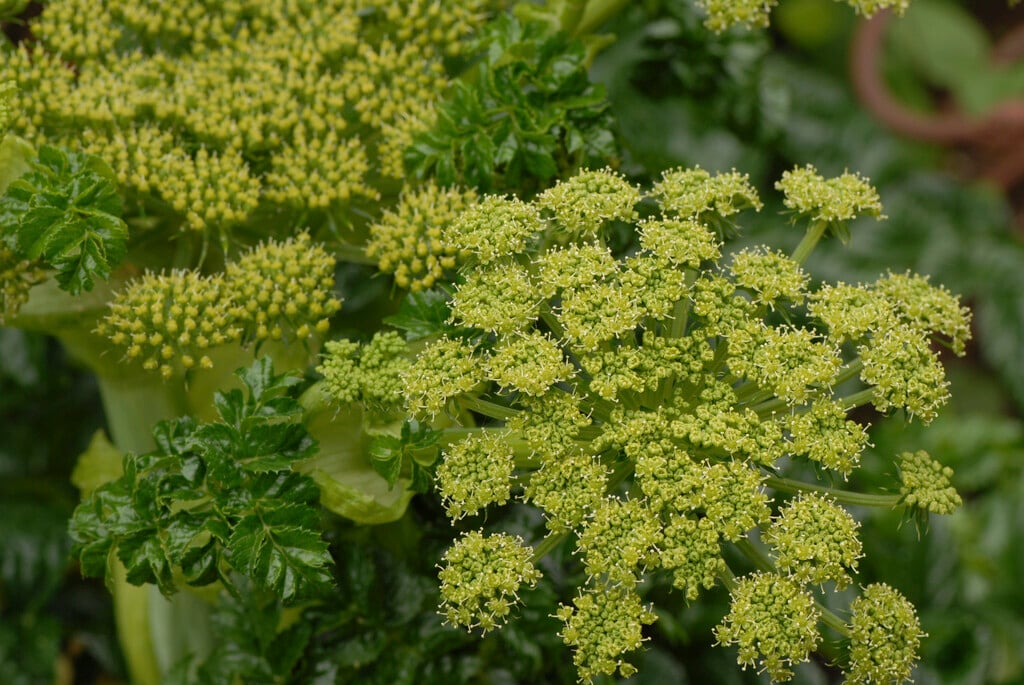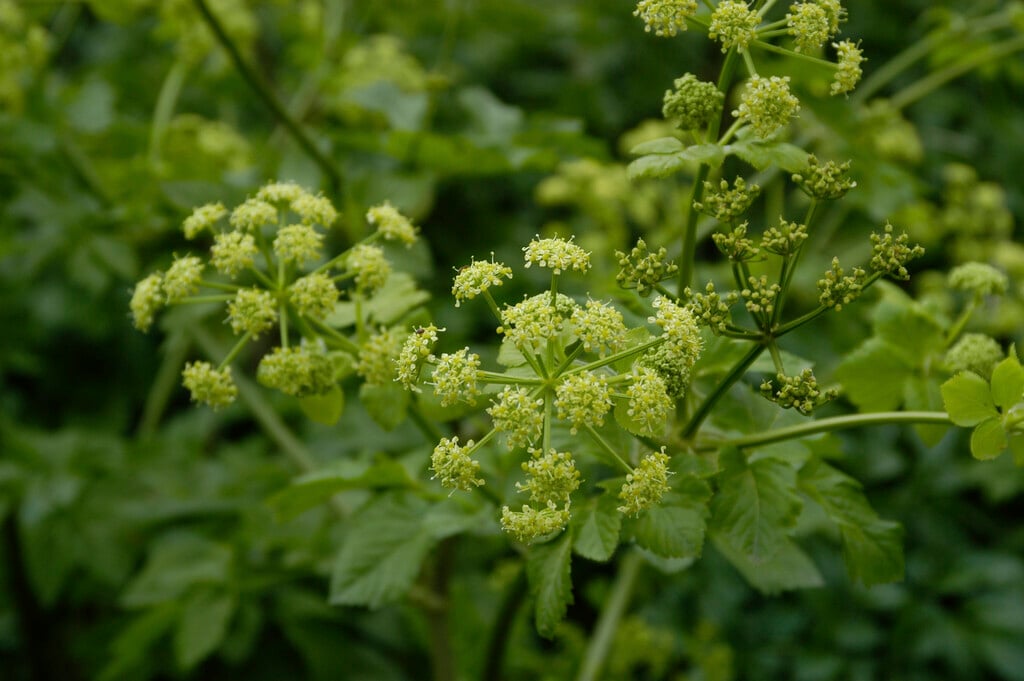Angelica pachycarpa
Portuguese angelica
A clump-forming, fleshy, deciduous biennial or short-lived perennial native to coastal regions of western Spain and Portugal with very shiny to glossy rich green pinnate leaves divided into ovate or lance-shaped, dark green leaflets and thick, stout, hollow, upright stems bearing large flat umbels of creamy-white to greenish-white flowers 10 - 20 centimeters wide from summer into autumn. The foliage and hollow stems have a faint aniseed scent.
Size
Ultimate height
1–1.5 metresTime to ultimate height
1–2 yearsUltimate spread
0.5–1 metresGrowing conditions
Moisture
Moist but well–drained, Well–drainedpH
Acid, Alkaline, NeutralColour & scent
| Stem | Flower | Foliage | Fruit | |
| Spring | Green | Green | ||
|---|---|---|---|---|
| Summer | Green | Green White Cream | Green | |
| Autumn | Green | Green White Cream | Green | |
| Winter |
Position
- Full sun
- Partial shade
Aspect
East–facing or South–facing or West–facing
Exposure
Exposed or Sheltered Hardiness
H5Botanical details
- Family
- Apiaceae
- Native to GB / Ireland
- No
- Foliage
- Semi evergreen
- Habit
- Bushy, Clump forming
- Genus
Angelica are large biennials or herbaceous perennials, some monocarpic, with pinnately or palmately divided leaves and small white or purple flowers in large umbels
- Name status
Correct
- Plant range
- Spain, Portugal
How to grow
Cultivation
Prefers deep, moist, fertile, loamy soil in full sun to partial shade.
Propagation
Propagate by seed sown in containers in a cold frame as soon as ripe; do not cover as seeds require light to germinate. Transplant seedlings while small; larger plants resent disturbance.
Suggested planting locations and garden types
- Cottage and informal garden
- Wildlife gardens
- Mediterranean climate plants
- Gravel garden
- Flower borders and beds
Pruning
Flowering stems can be cut down in autumn or spring.
Pests
Diseases
Susceptible to powdery mildews.
Love gardening
Sign up to receive regular gardening tips, inspiration, offers and more
View our Privacy Policy
Get involved
The Royal Horticultural Society is the UK’s leading gardening charity. We aim to enrich everyone’s life through plants, and make the UK a greener and more beautiful place.

